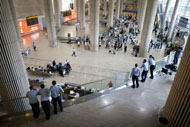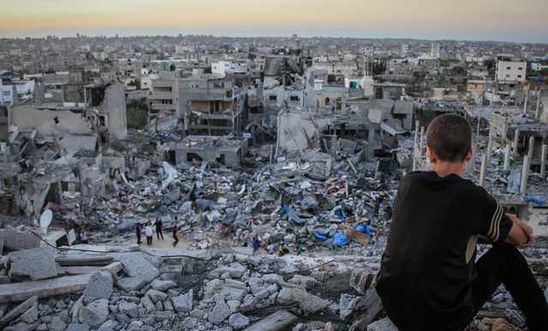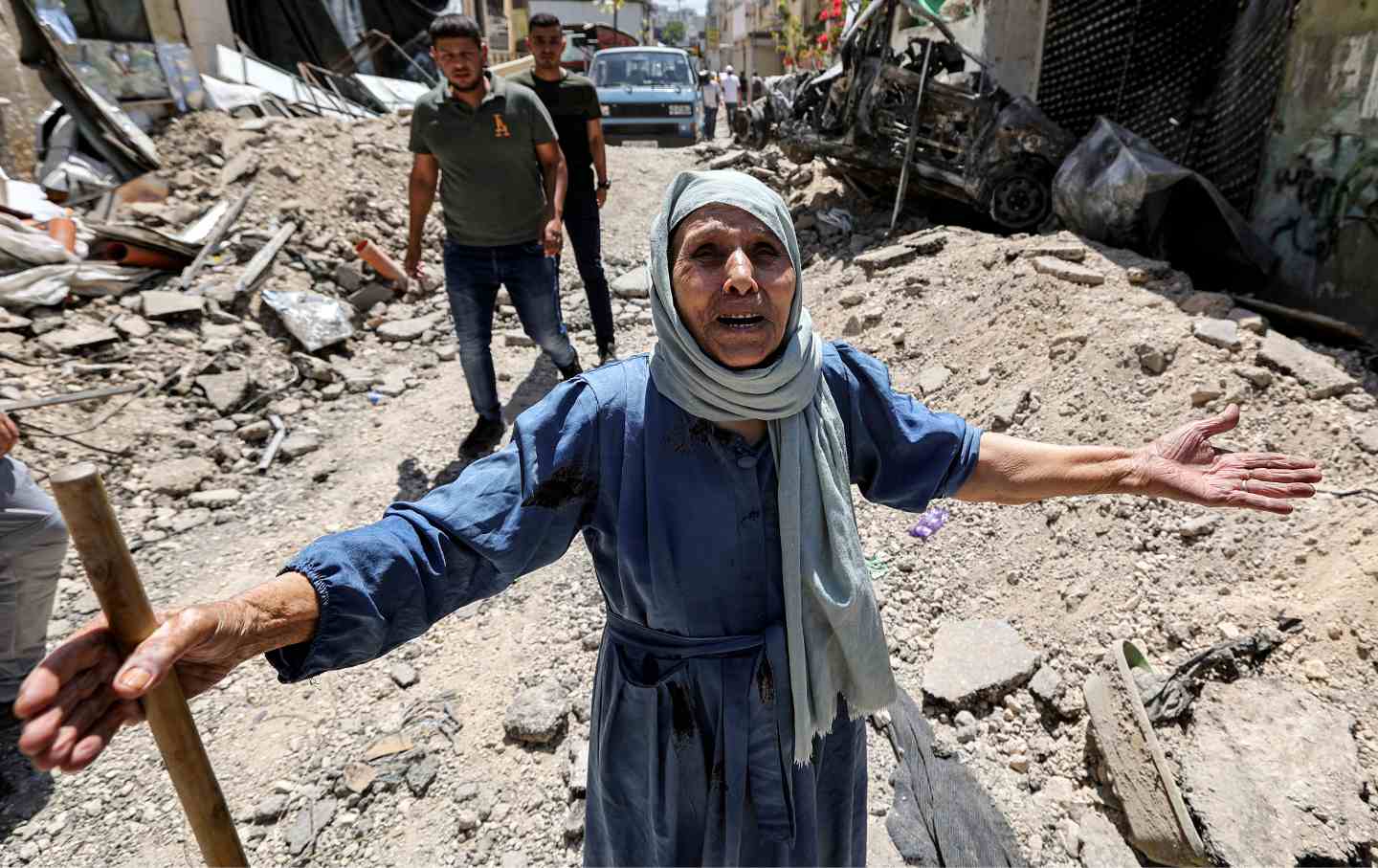Article 6 of the Convention on the Rights of the Child states, “States Parties recognize that every child has the inherent right to life.” Article 38 of the same convention goes on to state, “In accordance with their obligations under international humanitarian law to protect the civilian population in armed conflicts, States Parties shall take all feasible measures to ensure protection and care of children who are affected by an armed conflict.”
It goes without saying that these universal charters have often been muffled by the sounds of war and conflict throughout the world. Nowhere has this been more pronounced than here in Palestine and in Lebanon.
July has by far, been the bloodiest month in the Palestinian territories since the start of the Intifada in 2000, the violence and death spreading with a vengeance across the border into Lebanon. According to Lebanese officials, over 800 of its citizens, mostly civilians have been killed in the Israeli air strikes that began at the beginning of the month. Scores of these have been children.
While Israel is a signatory of international charters guaranteeing the rights of children in times of conflict, it has proven time and again that it easily forfeits its moral obligation towards these agreements in order to push its own agenda. In both southern Lebanon and in the Gaza Strip, this policy has been brutally exemplified, Israel’s expansionist and destructive policies leaving a blood-stained trail across both countries.
Since June 26 alone, according to Defense for Children International, a total of 31 children have been killed by Israeli military operations in the Gaza Strip, six under the age of ten.
Even fresher in the world’s collective memory are the heart-wrenching images of tiny limbs being pulled lifeless from beneath the rubble of a destroyed shelter in the southern Lebanese village of Qana. Struck by an F-16 bomb, these Lebanese civilians thought they had hunkered down in the safety of a civilian building in the hopes that they would survive another night of Israeli shelling. But as has become a kind of sordid ritual of the Israeli army, the bomb was dropped at one in the morning while the babies slept, their mothers and fathers huddled around them.
These images, whether in the Gaza Strip or in southern Lebanon, evoke emotions common among all humanity when encountered by such profound tragedy. The issue in question is not whether the deaths of these children are considered abominable and unacceptable to all humankind – this goes without saying, even if one asks the actual pilot who dropped the bomb on the sleeping babes.
Israel is always quick to respond with a forked tongue. Of course it “regrets” the loss of civilian lives, especially children. What civilized nation would not? However, in the same breath, its officials shove the blame elsewhere. In Gaza, it is the fault of “terrorist organizations” such as Hamas and the Islamic Jihad or the Popular Resistance Committees, for holding meetings and plotting operations against Israel in civilian areas. In southern Lebanon, the fault must surely be put on Hezbollah for firing rockets from Qana – didn’t Israel drop flyers calling on the residents to evacuate?
Fortunately, not everyone is buying this half-baked and preposterous excuse. The day after the Qana massacre, Human Rights Watch issued a statement in which it put the blame for the civilian deaths on Israel.
“Just because the Israeli military warned the civilians of Qana to leave does not give it carte blanche to blindly attack,” said Kenneth Roth, Executive Director of Human Rights Watch, adding that Israel, “seems to consider anyone left in the area a combatant who is fair game for attack.”
Unfortunately, however, this is not enough. Following a guarantee to hold off on air strikes for 48 hours following the Qana attack – which by the way Israel did not comply with completely – Israel has vowed to resume its air attacks promptly after the clock strikes twelve, thus ending the suspension.
Still, as painful a reality as this may be, the Israeli killing of children and innocent civilians in the Gaza Strip and Lebanon so far may not be the worst yet. This is because the bomb on Qana or the 31 children killed in the Strip in one month are not incidental casualties. Rather, they are part of a systematic policy carried out by the Israeli military establishment, approved by the highest political echelons, aimed at squashing, silencing and obliterating any voice of rebellion, anyone who dares stand up to the beast.
As if this was not frightening enough, consider the fact that Israel is virtually being applauded by the United States for its war on Lebanon. It is hard to say whether it is Israel or the US that is towing the other’s line, but the reality remains that Israel continues to unjustifiably bomb and attack Lebanon’s people and infrastructure while the US gives continuous support. Given that kind of power behind them, Israel has set its own timetable for its offensive, or in the words of Israeli Prime Minister Ehud Olmert, 14 days to be exact.
So, the death toll of Lebanese or Palestinians for that matter has yet to be tallied. It is clear by its bombing in Qana and in the Gaza Strip that Israel feels no obligation to stop its targeting of civilians on its own. The only hope left is for the international community, with a strong United Nations and European leadership at the helm, to stop this Israeli onslaught and ensure that civilians in both areas are indeed protected.
The world has an obligation towards its children and Lebanese and Palestinian children deserve no less attention than any others across the globe. The time has come to acknowledge these children’s right to life and to ensure that they too are allowed a life of dignity and freedom.
Joharah Baker is a Writer for the Media and Information Programme at the Palestinian Initiative for the Promotion of Global Dialogue and Democracy (MIFTAH). She could be contacted at mip@miftah.org









